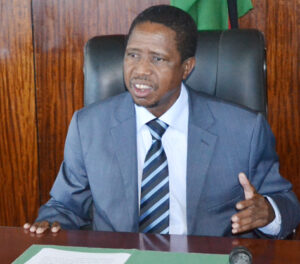Guest Blog By Betty K Chilufya*
Reading is a beautiful town in the South East of England in which a hive of community activities take place throughout the year. This year, 2015, the Mumba Children’s Project (MCP) in conjunction with the CancerSupport Network of Zambia (CSNZ), will be hosting a charity Easter Ball at the Hilton Hotel, Reading, on the April 11, 2015. The money raised at this event will be equally shared by the two charities.
The MCP based in Mpongwe, Zambia, was initiated by Hildah
Mulenga in memory of her 13 year old son who was tragically killed after being
run down by a car while riding a bike. This incident occurred shortly after the
family had moved to Southend-on-Sea, in Essex in the United Kingdom.
The MCP functions as a children’s day care learning centre.
Children include orphans being looked after by grandparents and extended families while the rest are
from impoverished families who need a lot of assistance as there are no social
benefits in Zambia.
 |
| Some of the children that helped by the Mumba Children's Project. |
Their mission is to
acknowledge that every child matters and no child is born to die. They strive
to give children in their care, basic needs which include education, clothing,
shelter, safe playing environment and a nutritional balanced diet.
Mosaic Art
Apart from caring for the children, the centre empowers the
youth with life sustaining skills such as carpentry. In September this year, a
group of Mosaic artists from the UK will be traveling to Mpongwe to teach the
youth Mosiac art. It is hoped after being taught this amazing skill, they will
be able to start their own profitable business. In the same group will be an experienced aroma
therapist who will teach the women on reflexology and aromatherapy. The MCP
also offers material support to the adults especially with literacy classes and help in
looking after their children. This charity is registered both in Zambia and the
UK.
The CSNZ was founded by Doreen Mwenya Grant based in the USA and is a breast cancer
survivor. It was launched in October 2011 in Zambia and has its headquarters in
Kitwe. It aims to educate the public on cancer, advocate for better health and
inspire people with its stories of hope.
The organisation is committed to
helping strengthen the mental and physical capacity of cancer patients in order
for them to fight their way back to health. It gives hope by building and
sustaining strong peer facilitated support groups, educational forums that
empower people affected by cancer and give inspiration for a life beyond the
cancer experience. Currently it offers support to cervical, breast and prostate
cancer patients.
Cancer Eradication
CSNZ is always thankful with the commitment made by donors
for supporting their efforts in making strides towards eradicating cancer in Zambia. The vision of the Board of Directors and the Planning Committees is to reach as
many communities as possible with life-saving information, provide training forums
and challenge lawmakers.
In 2013, a public appeal was made to CSNZ by Chief Chiwala of Masaiti District to sensitise and screen women on breast
and cervical cancer. A team of advocates and health care professionals
screened hundreds of women for breast and cervical cancer. The event was
such a success that it received national media attention.
Women that were
found to have signs or symptoms of cancer, received written referrals for
specialised screening at district hospitals. A vehicle was rented to transport
the advocates and nurses to and from Ndola Rural, who were able to provide
printed educational materials, organise forums and basic screening
equipment.
Some patients were provided
with transport to and from the Cancer Diseases Hospital, Lusaka, where they
received mammograms or pap tests. This activity was made possible by the support from various
donors from around the globe.
It is also important to mention that all the CSNZ
advocates are all volunteers and are not reimbursed for their time or effort.
Despite the many challenges, the CSNZ continue to grow as an organization, and
its partnerships with its sponsors is vital to the success of eradicating
cancer in Zambia.
At CSNZ’s launch in 2011, a group of women from Mpongwe
attended the gala at Edinburgh Hotel in Kitwe and one of them was a breast
cancer patient who received support and participated in the walk with the then
First Lady Dr Christine Kaseba Sata.
Cervical Cancer Treatment
Currently there are women from Mpongwe who are undergoing cervical cancer treatment at Ndola Central Hospital with the help and support of CSNZ. Mumba Children’s Project has and continues to use the services offered by the CSNZ and therefore feel obliged to plough back funding into the Network. It is for this reason that MCP will share the funds raised at the charity event with CSNZ.
Currently, the MCP are building three classrooms with the
support of various donor groups based in the UK.
With the money raised from the
charity ball, they plan to buy desks and other school stationary. There are
also future plans to complete a library and make it a resource centre for the
youth. For the CSNZ, it is hoped that the funds raised will help to equip
a gynaecological ward at Kitwe Central Hospital, Zambia that has been allocated
to them.
*With the help of Doreen Mwenya Grant and Hilda Mulenga.

